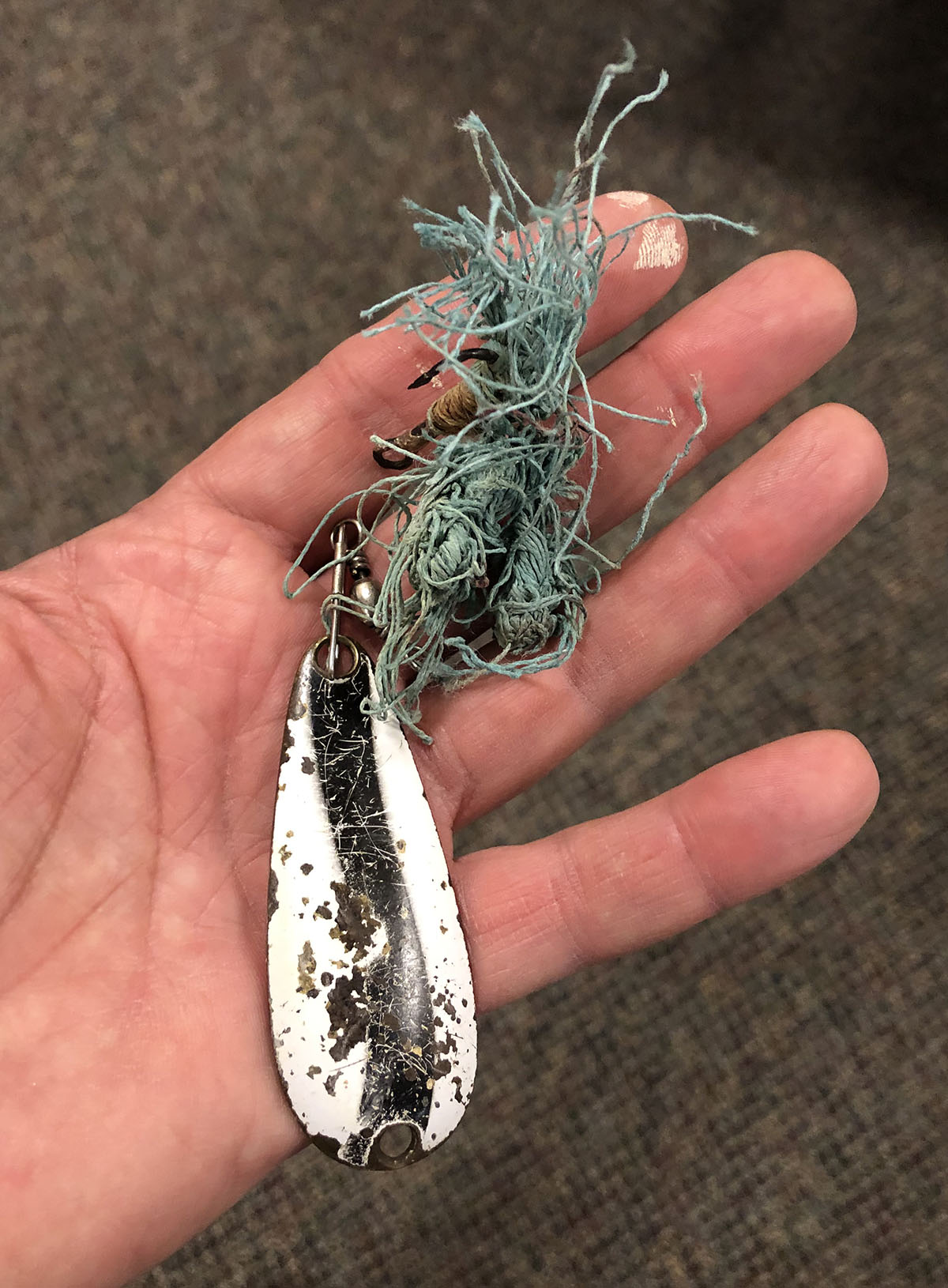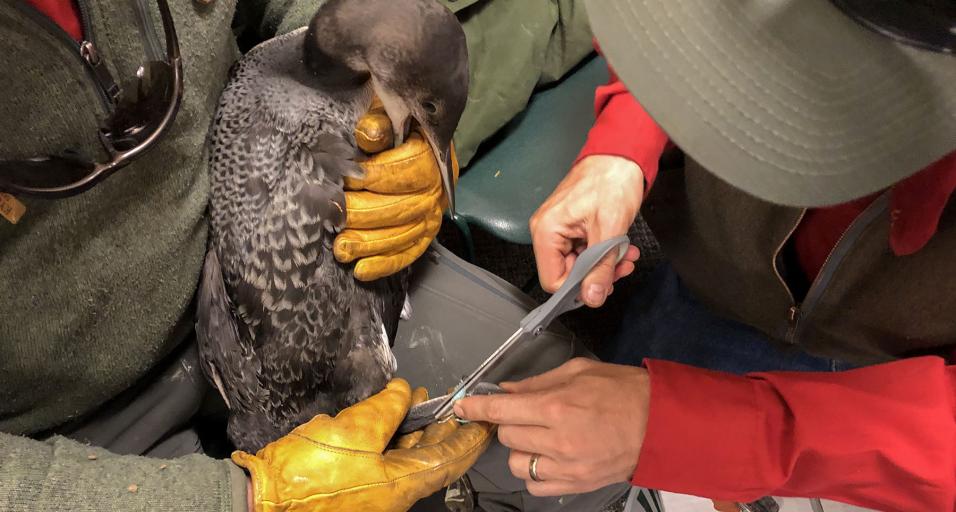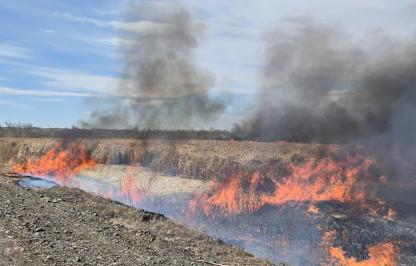Loon Gets a Hand from Game & Fish
Jackson Game Warden Kyle Lash recently responded to a report of a loon at Munger Elementary School south of Jackson, an unusual report to say the least! Loons are not particularly common in the Jackson area and definitely not in the parking lot of a school, which is where the cafeteria staff first noticed it as they arrived for school. Game & Fish received the call via the Teton Raptor Center.
It is not unheard of for waterbirds to mistake parking lots as open water, particularly if they're wet. The problem for diving birds, such as loons and grebes, is that their legs are positioned further back on their body (for fast swimming underwater), requiring a runway of open water to take flight again, thus they can essentially become stuck on land. Further hampering this young loon was some fishing line and a lure that had unfortunately become entangled on its leg.

The call of the loon is largely considered one of the most beautiful, and eery, sounds in nature. Loons are also typically known for their striking jet-black plumage with white spotting, which occurs during the breeding season. However, this bird, determined to be a juvenile, has the more subdued, grayish plumage. Managers say there is no way of knowing the bird's origin, but given the season, it is likely in the process of migrating to its wintering area somewhere on the Pacific coast. While northwest Wyoming is home to a handful of breeding pairs each summer, loons more commonly nest in the northernmost states and the Canadian provinces.
Fortunately, Lash and and fellow Afton Game Warden James Hobbs were able to remove the fishing line and Hobbs then released the bird to Palisades Reservoir near Alpine, an expanse of water suitable for the bird to again take flight. "These are the ones that make you feel good, when you can help an animal out and release it back to the wild," said Hobbs. "We much prefer these kinds of happy endings."
It is not unheard of for waterbirds to mistake parking lots as open water, particularly if they're wet. The problem for diving birds, such as loons and grebes, is that their legs are positioned further back on their body (for fast swimming underwater), requiring a runway of open water to take flight again, thus they can essentially become stuck on land. Further hampering this young loon was some fishing line and a lure that had unfortunately become entangled on its leg.
The call of the loon is largely considered one of the most beautiful, and eery, sounds in nature. Loons are also typically known for their striking jet-black plumage with white spotting, which occurs during the breeding season. However, this bird, determined to be a juvenile, has the more subdued, grayish plumage. Managers say there is no way of knowing the bird's origin, but given the season, it is likely in the process of migrating to its wintering area somewhere on the Pacific coast. While northwest Wyoming is home to a handful of breeding pairs each summer, loons more commonly nest in the northernmost states and the Canadian provinces.
Fortunately, Lash and and fellow Afton Game Warden James Hobbs were able to remove the fishing line and Hobbs then released the bird to Palisades Reservoir near Alpine, an expanse of water suitable for the bird to again take flight. "These are the ones that make you feel good, when you can help an animal out and release it back to the wild," said Hobbs. "We much prefer these kinds of happy endings."
Mark Gocke, Public Information Specialist, 307-249-5811



